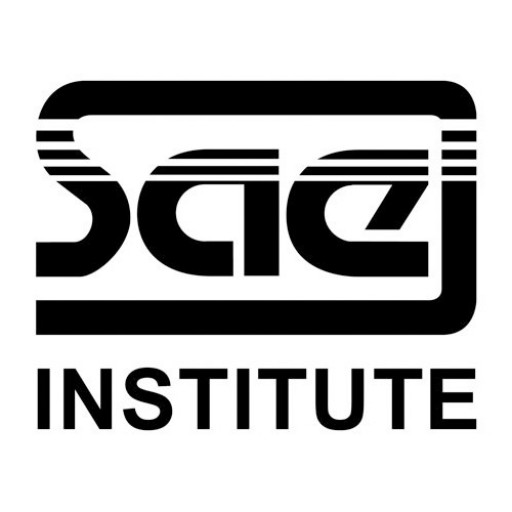Photos of university / #uow
The Bachelor of Communication and Media Studies with a specialization in Screen Studies at the University of Wollongong offers students a comprehensive understanding of the dynamic and rapidly evolving media landscape, with a particular focus on film, television, and digital screen media. This program is designed to equip students with critical skills and theoretical insights necessary to analyze, produce, and interpret media content in contemporary society. Throughout their studies, students will explore the history, theory, and practice of screen media, engaging with a diverse range of genres, formats, and technological advancements that have shaped modern visual culture. The curriculum emphasizes both academic inquiry and practical skills, allowing students to develop competencies in media analysis, storytelling, production techniques, and digital content creation.
Students will have the opportunity to study topics such as film criticism, media representation, audience engagement, and the socio-cultural impact of screen media on communities worldwide. The program also explores emerging trends in digital media, including virtual reality, streaming platforms, and interactive media, preparing graduates to adapt to the future of media industries. With access to state-of-the-art facilities and close links to industry partners, students gain hands-on experience in film and media production, editing, and post-production processes. The program encourages critical thinking, creativity, and innovation, fostering a deeper understanding of how media shapes identities, influences public opinion, and drives social change.
Graduates of the Bachelor of Communication and Media Studies (Screen Studies) are well-equipped to pursue careers in film and television production, media analysis, digital content creation, marketing, journalism, and other related fields. The program's flexible structure allows students to tailor their studies toward their interests and career goals while gaining a solid foundation in media theory and practice. By engaging with both theoretical and practical aspects of screen media, students emerge from the program capable of contributing thoughtfully and effectively to industries that rely heavily on visual storytelling and media literacy in an interconnected world.
The Bachelor of Communication and Media Studies (Screen Studies) at the University of Wollongong offers students an in-depth exploration of the dynamic and ever-evolving world of screen-based media. This program is designed to provide a comprehensive understanding of film, television, digital media, and visual culture, equipping students with critical skills and practical knowledge necessary for careers in the media industry, academia, or related fields. Throughout the course, students engage with a wide range of topics, including film theory and history, media production, storytelling techniques, media technologies, and the cultural impact of screens in contemporary society. The program emphasizes both theoretical analysis and hands-on experience, enabling students to analyze media texts critically while developing their own media productions. Students will have opportunities to learn about scriptwriting, filming, editing, and digital media production, preparing them for diverse roles within the creative industries. The curriculum also encourages students to explore issues related to media representation, audience engagement, and the sociocultural effects of screen media. With flexibility in course selection, students can tailor their studies to specific interests, such as noir cinema, global media, or new media technologies. The program aims to foster critical thinking, communication skills, and technical expertise, making graduates well-equipped to contribute thoughtfully and creatively to the media landscape. Additionally, students benefit from industry connections through internships and collaborative projects, gaining real-world experience that enhances employability. Upon completion, graduates are prepared for careers in film production, television, digital media, media analysis, cultural policy, and related fields, with a solid foundation to pursue further study or professional opportunities in the vibrant media industry.
The Bachelor of Communication and Media Studies (Screen Studies) at the University of Wollongong requires students to complete a total of 144 credit points over the duration of the program. Students must undertake a combination of core and elective units designed to provide a comprehensive understanding of screen media and its role in contemporary communication. The core units typically include topics such as Introduction to Screen Studies, Media Production, Media History, Theory and Criticism, and Digital Media Analysis. In addition to these foundational courses, students are encouraged to select electives that align with their interests within the field, which may include advanced screen production, media law and ethics, digital storytelling, and experimental media practices.
Students are expected to engage in practical coursework that develops their skills in media analysis, production, and critique, alongside theoretical knowledge. The program emphasizes critical thinking, technical proficiency, and an understanding of the social and cultural impacts of screen media. To satisfactory complete the degree, students must achieve a passing grade in all required units, maintain the progression standards set by the university, and potentially undertake a capstone project or dissertation in their final year to showcase their research and practical skills.
Additionally, the program encourages industry engagement through internships, workshops, and collaborations with media organizations, offering students real-world experience and professional development opportunities. International students must meet the English language requirements specified by the university for admission. The program also includes opportunities for students to participate in study abroad programs or exchange semesters, enriching their global perspective in media studies. Overall, the program aims to produce graduates who are well-equipped for careers in media production, critique, journalism, digital communications, or further postgraduate study in communication or media fields.
The University of Wollongong offers a comprehensive Bachelor of Communication and Media Studies, with a specialization in Screen Studies, which includes various financing options for both domestic and international students. Domestic students can access a range of government-supported financial assistance programs, such as FEE-HELP, a loan scheme that helps eligible students pay their tuition fees. This scheme allows students to defer payment until they have completed their studies and are earning above a certain income threshold, thereby reducing immediate financial burdens and making higher education more accessible. Additionally, students may be eligible for scholarships offered directly by the university or through external organizations, which can provide partial or full fee waivers based on academic merit, need, or specific criteria related to the program or student background.
International students are typically required to pay tuition fees upfront, but they can explore various payment plans or scholarships that may be available, including merit-based scholarships, need-based grants, or university-specific financial aid options. The university also provides detailed guidance and support through its International Office to help students understand their financial obligations and opportunities for funding their studies. Outside of university-provided financial support, students can seek funding from external sources such as government grants in their home country, private scholarships, or student loans available through financial institutions.
The total cost of the program includes tuition fees, which vary depending on whether the student is domestic or international, as well as associated costs such as textbooks, technology, and living expenses. The university encourages prospective students to consult its Financial Services department or the official university website to obtain the most current information regarding tuition fees and available funding options specific to the Communication and Media Studies (Screen Studies) program. Overall, the university emphasizes affordability and provides a broad spectrum of financing opportunities to support students throughout their educational journey in this dynamic field.
The Bachelor of Communication and Media Studies (Screen Studies) at the University of Wollongong offers students a comprehensive education in the theoretical and practical aspects of screen media, including film, television, and digital multimedia. This program aims to develop students' analytical skills, technical knowledge, and creative abilities to prepare them for careers in media production, film criticism, screenwriting, and media research. The curriculum covers a broad range of topics such as film history, media theory, digital storytelling, visual culture, and media industries. Students gain hands-on experience through workshops, media projects, and industry internships, fostering skills relevant to contemporary media environments. The program emphasizes critical engagement with media texts and industry practices, encouraging students to think critically about the societal, cultural, and technological impacts of screen media. Graduates of the program are equipped to work in diverse fields including broadcasting, film production, media management, and digital content creation. The University of Wollongong's strong connections with media industries and creative sectors provide opportunities for networking, internships, and collaborative projects. The program is designed to cater to students interested in both the artistic and professional aspects of screen media, promoting innovative approaches and media literacy. It also prepares students for postgraduate studies in media, film, communication, and related disciplines. Coursework combines theoretical coursework with practical skills training, including editing, screenwriting, and media production techniques. The program aims to produce graduates who are not only skilled media practitioners but also critical thinkers capable of analyzing and shaping media content in a rapidly evolving digital landscape.







